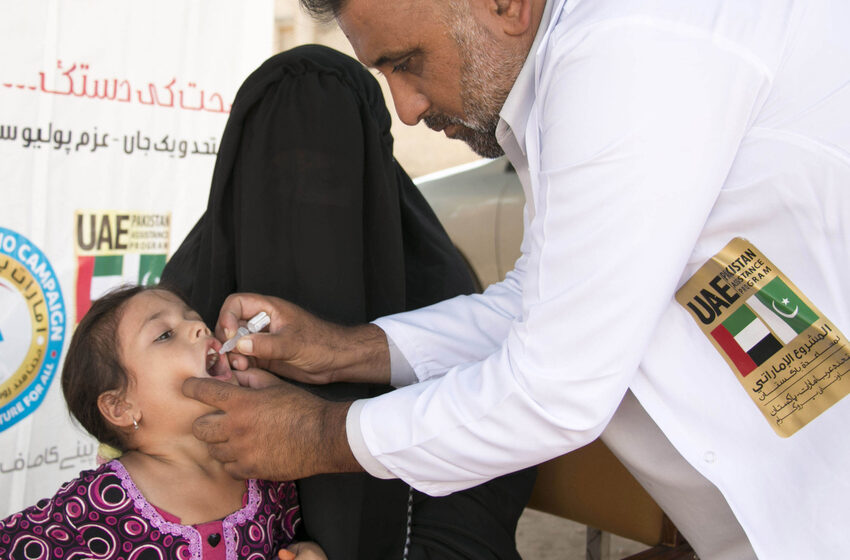
The United Arab Emirates is a world leader in the fight against polio
Last updated on October 25th, 2022 at 04:03 am
The last case of polio was recorded in the UAE in 1992, but this did not stop the fight against a disease that still cripples or kills youngsters worldwide each year.
Perhaps as a result of its early exposure to sickness in the years preceding the country’s establishment, the UAE has always been a leader in the fight for improved health.
In the same year that polio was eradicated from the UAE, the late Sheikh Zayed bin Sultan Al Nahyan was a pioneer, joining former US president Jimmy Carter in the campaign to eradicate parasitic disease in Africa.
This devotion continues to this day through support for efforts against so-called neglected tropical illnesses, malaria, and of course polio.
The UAE has provided practical and financial assistance to research and immunization programs for over a decade.
There are concerns that the polio virus could resurface in Africa, although it has been eradicated everywhere except Pakistan and Afghanistan.
Keep Reading
Crucial help for millions out there
Since 2014, the UAE Pakistan Vaccination Assistance Programme has delivered around 600 million doses of polio vaccine in Pakistan, thereby protecting approximately 102 million children.
Both the late President Sheikh Khalifa and the current President Sheikh Mohamed supported the fight against polio.
President Sheikh Mohamed has donated $250 million since 2014, initially as Crown Prince of Abu Dhabi, to charities and humanitarian organizations staging polio eradication programs and vaccinating children.
In Abu Dhabi, under the patronage of Sheikh Mohamed and with the backing of Ban Ki-moon, the UN secretary general at the time, and the billionaire Bill Gates, the inaugural Global Vaccine Summit was held ten years ago.
More than 300 international leaders, health and development specialists, philanthropists, and prominent businesses attended the summit, which was a tremendous success.
In just two days, $4 billion was pledged to fund a six-year plan to eradicate polio, and Bill Gates praised the UAE’s government as “dynamic” and “risk-taking.”
After a decade, the six-year deadline has passed and polio is still present, but in considerably smaller numbers. Pakistan has reported more than twenty incidents so far in 2022, while Afghanistan has reported two, but this image may be obscured by the Taliban takeover. At least in Nigeria, the disease has been eradicated.
However, the UAE’s support remains unchanged.
An additional $9,500,000 was announced for door-to-door efforts in Pakistan in addition to $376,000 for protective equipment against Covid-19 for health workers last year.
UAE Minister of Health and Prevention Abdul Rahman Al Owais reaffirmed the nation’s dedication to a polio-free world at this year’s Global Polio Eradication Initiative summit.
“This year’s polio outbreaks have demonstrated that polio is a hazard to all communities,” he stated.
While we are heartened by the steady progress made in Pakistan and Afghanistan towards the eradication of polio, we recognize that much work remains.
However, the work accomplished thus far indicates significant advancement. Prior to thirty years ago, polio was endemic in more than 125 nations on nearly every continent. In 1988, at least 300,000 contracted the illness. Today, there are just twenty.




